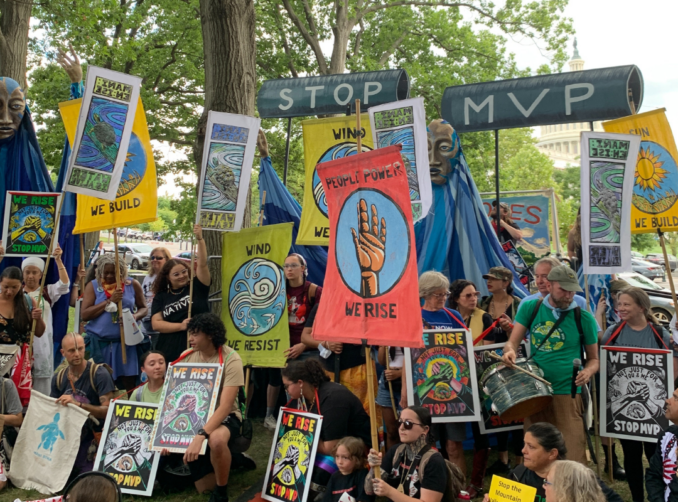‘Compromise and consensus’ − but for whom?
 President Joe Biden averted a default on the federal debt June 3 when he signed the Fiscal Responsibility Act. Biden hailed the bipartisan “compromise and consensus” that resulted in the bill being approved by the House and Senate earlier in the week. He even said the Republican negotiators, who wanted cuts in spending — but of course not military spending — “acted responsibly and put the good of the country ahead of politics.” (pbs.org)
President Joe Biden averted a default on the federal debt June 3 when he signed the Fiscal Responsibility Act. Biden hailed the bipartisan “compromise and consensus” that resulted in the bill being approved by the House and Senate earlier in the week. He even said the Republican negotiators, who wanted cuts in spending — but of course not military spending — “acted responsibly and put the good of the country ahead of politics.” (pbs.org)
One of the bill’s lowlights is the suspension of the freeze on student loan payments — meaning young people struggling to make ends meet, working one or more low-wage jobs, will have another bill to pay.
An estimated 750,000 individuals could lose Supplemental Nutrition Assistance Program benefits under the bill, which raises from 50 to 54 the age at which a recipient is required to work at least 80 hours per month to receive food stamps. This would hit very poor, elderly and disabled people the hardest.
In addition the bill “effectively ratchets up requirements on states to show that very low-income parents receiving [Temporary Assistance to Needy Families] income assistance are meeting rigid work requirements that are often ill-suited to the needs of families.” (Center on Budget and Policy Priorities, May 31)
Democratic supporters of the bill point to new exemptions to the work requirement for veterans and houseless people, saying the actual total number of SNAP benefit recipients could increase. But why abandon poor families, disproportionately families of color, about to lose a needed benefit?

Demonstration to oppose construction of the Mountain Valley Pipeline, Sept. 8, 2022. The Fiscal Responsibility Act gives developers the green light to build the natural gas pipeline through West Virginia and Virginia. Photo: Jen Lawhorne
The bill curtails a number of clean energy-related tax credits for individuals and businesses, while fast-tracking the Mountain Valley Pipeline, which when completed will carry natural gas from West Virginia to Virginia, with a proposed extension into North Carolina. Courts previously held up construction after residents drew attention to environmental problems caused by deforestation and mountaintop removal to grant pipeline developers the right of way.
No gains for working class
Despite President Biden’s exuberance over the lifting of the debt ceiling, there is nothing in this bill for workers and oppressed people to celebrate. Not one penny of the Pentagon budget — which increased under the Biden administration along with billions in military aid to Ukraine —has been touched.
Not one loophole the billionaires use to get out of paying taxes has been closed. The bill is yet another transfer of wealth — all created by the working class — from the masses of people who pay student loans, taxes and many other bills to the tiny wealthy minority at the top.
While the most rabid right-wingers in Congress opposed the bill because it didn’t cut enough from safety net programs, some of the more progressive Democrats voted against it for the damage it contained. But that’s all they did — voted. They didn’t even lobby against it, let alone mobilize their constituents — the millions who will actually be hurt by the bill — to try to stop it.
After Biden signed the so-called Fiscal Responsibility Act, the stock market gained 700 points. It’s no surprise this law sounds a bit like former House Speaker Newt Gingrich’s Personal Responsibility Act, which then-President Bill Clinton signed in 1996, forcing people on public assistance to work for their measly benefits.
That should clear up any doubts as to which class the celebrated “compromise and consensus” on Capitol Hill was orchestrated to benefit.
It will be up to the multinational working class to build a movement around demands like “Bail out the people, not the banks” and “Feed the poor, not the Pentagon!”

